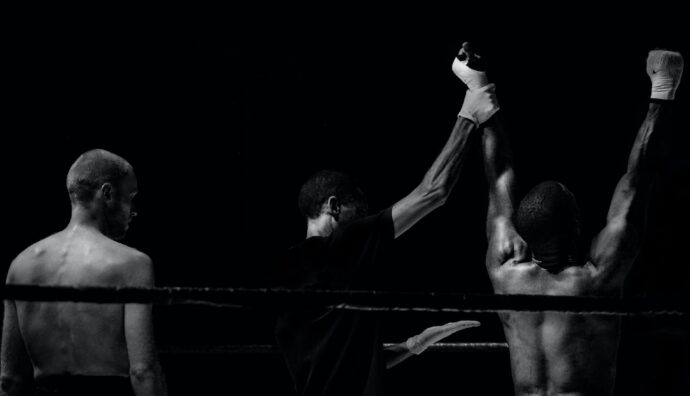Losing.
Nobody likes to lose. But what does losing mean?
Like almost everyone else, we give a meaning to a concept that derives from the situations we experience. You lose a wallet. An earring on a beach. A relationship. A job. Your confidence. A competition. A bet. Sometimes you lose weight…And so on
The concept is quite clear: somehow, losing deals with something that was -or that could be- yet is no longer. It somehow disappears from our radar and from our ability to connect with that.
Nobody likes to lose. This explains why we are able to implement, as individuals and society, complex, twisted and dysfunctional reasoning and behaviors, in order to deny the underlying dimension of losing, that is definitiveness.
How scary is something definitive? How many people are in checkmate and accept toxic situations and relationships because the fear of losing -a person, a job, a position, a role- takes over?
Instead we often get trapped in routines that maybe have the appearance of some sociality. Actually resulting in increasingly suffocating shells where individualism prevails.
Marketing knows this. And it well knows that it’ll conquer the audience if it will match consumption with a value judgment perceived as positive by the consumer. In other words: if you buy that product, it’s because you are, for instance, “generous”, “ethical”, “concerned about the planet”.
Pay attention to the keywords of the various advertisements. And then ask yourself if you – or the people you know and who buy those products – are like those thirty seconds of advertising describe them.
No environment is safe from this sort of “flight from reality”.
Not even Martial Arts.
The practice of a discipline helps to forge an identity and a personality. It manages to bring out characteristics of our personality that we had often forgotten or we were not aware of.
In other words, it is able to really activate a path of improvement.
But at the same time, just like all the other human dimensions of our life, it can become a bubble in which an unreal life takes place. An ethereal avatar made just of perfect feelings and imperturbability. An oasis in which losing, the harsh reality of the definitive, is basically diluted behind many beautiful speeches and a “oh yes, whatever…Everything is fine…Oooooohmmmmmm”.
Well, no, everything is not fine. It wouldn’t be real. Exactly like saying that “everything is bad”.
All is not well if the practice does not convey, in the lightest possible way and with a smile, the existence of the definitive.
There is a lot of talk, correctly, about the fact that a discipline like Aikido promotes the overcoming of a dual vision. It is a true statement. But in order to begin to understand the truth of this statement we all need the strong experience of duality.
Formal training proposes a model of movement. Beginners or not, a technical proposal puts a gap between the model and the awkwardness with which people try to repeat it.
The techniques either generate imbalance, movement and immobilization or projection, or they don’t. A shot hits, or it doesn’t. A fall has no consequences on the musculoskeletal structure only if it is properly executed. Otherwise… Well, everyone has a memory of this on our body, right?
The superficiality with which such issues are (not) addressed generally leads to talk of “effectiveness”.
But effectiveness is the finger we want to hide behind so as not to see the real problem. And that is the acceptance of our reality. Which is a reality in which the denial of definitiveness blinds us.
We think we sweep our insecurities and failures under the rug of the image of a perfect technique, pretending to ignore that technical perfection is no guarantee of not losing.
Let’s try to think then, when we practice, that when the partner takes us to the ground and blocks us, that moment could be a “forever” and not just a transition during an exchange of roles.
“Yes, he’s pulling the lever to me but in ten seconds I’ll rise up and it’ll be my chance to destroy him”.
When we lose our balance, control of our movement and our joints… Let’s try to put ourselves into the acceptance what we actually have lost.
We put in what we have lost in the day, in the week, in life.
Maybe that’s where the change begins. Maybe that’s where discipline begins and sports practice ends.
Maybe there we win for real.
Disclaimer: Photo by Skitterphoto from Pexels

